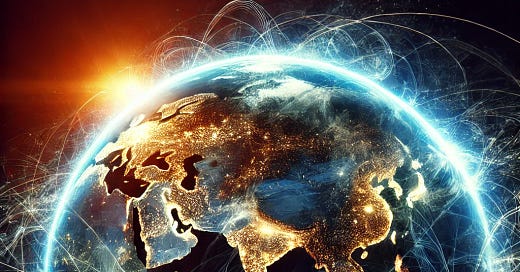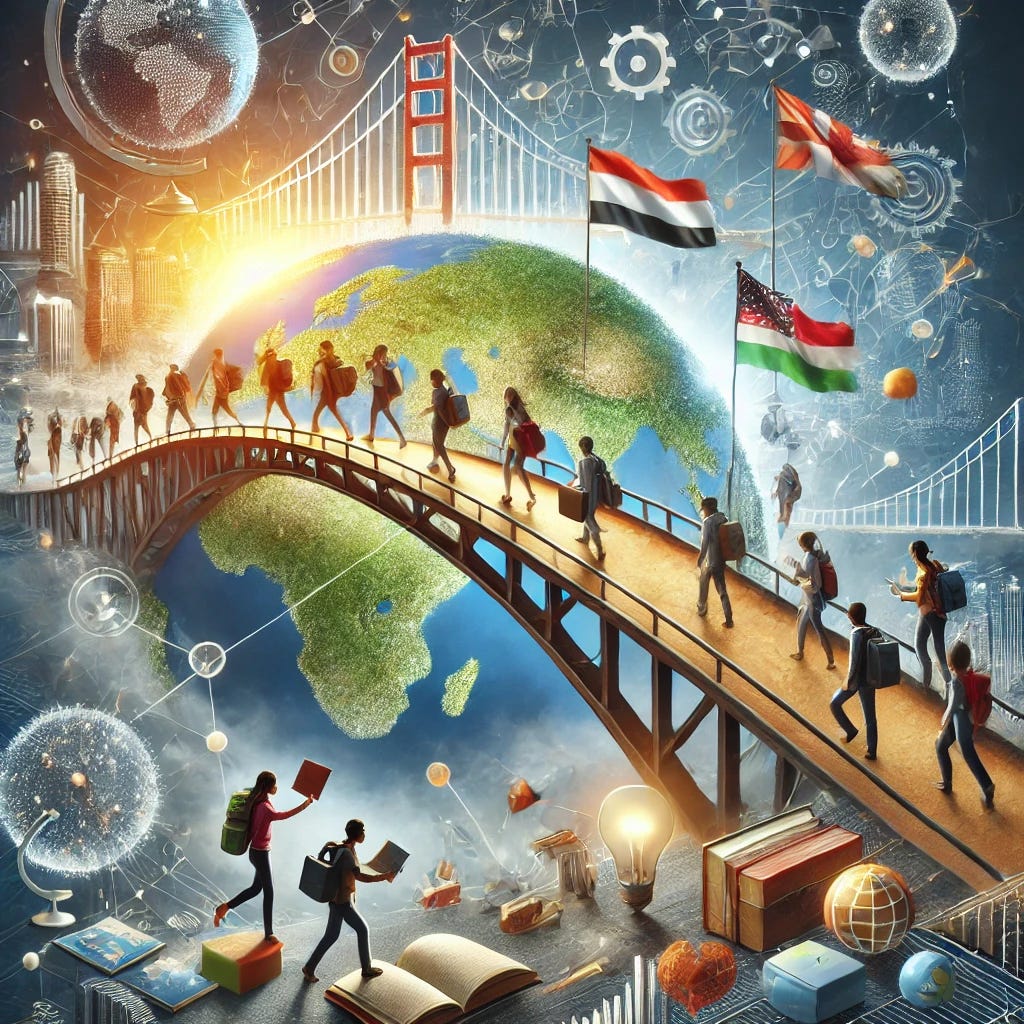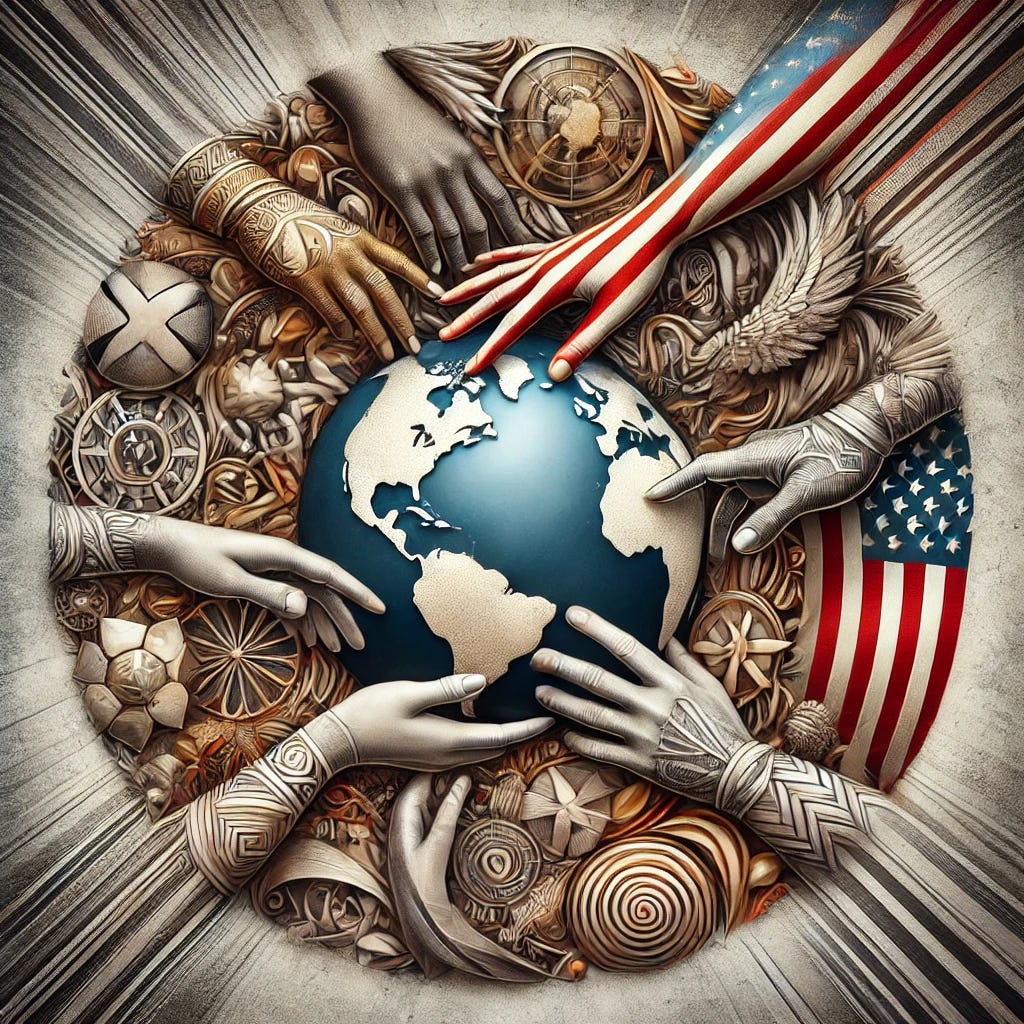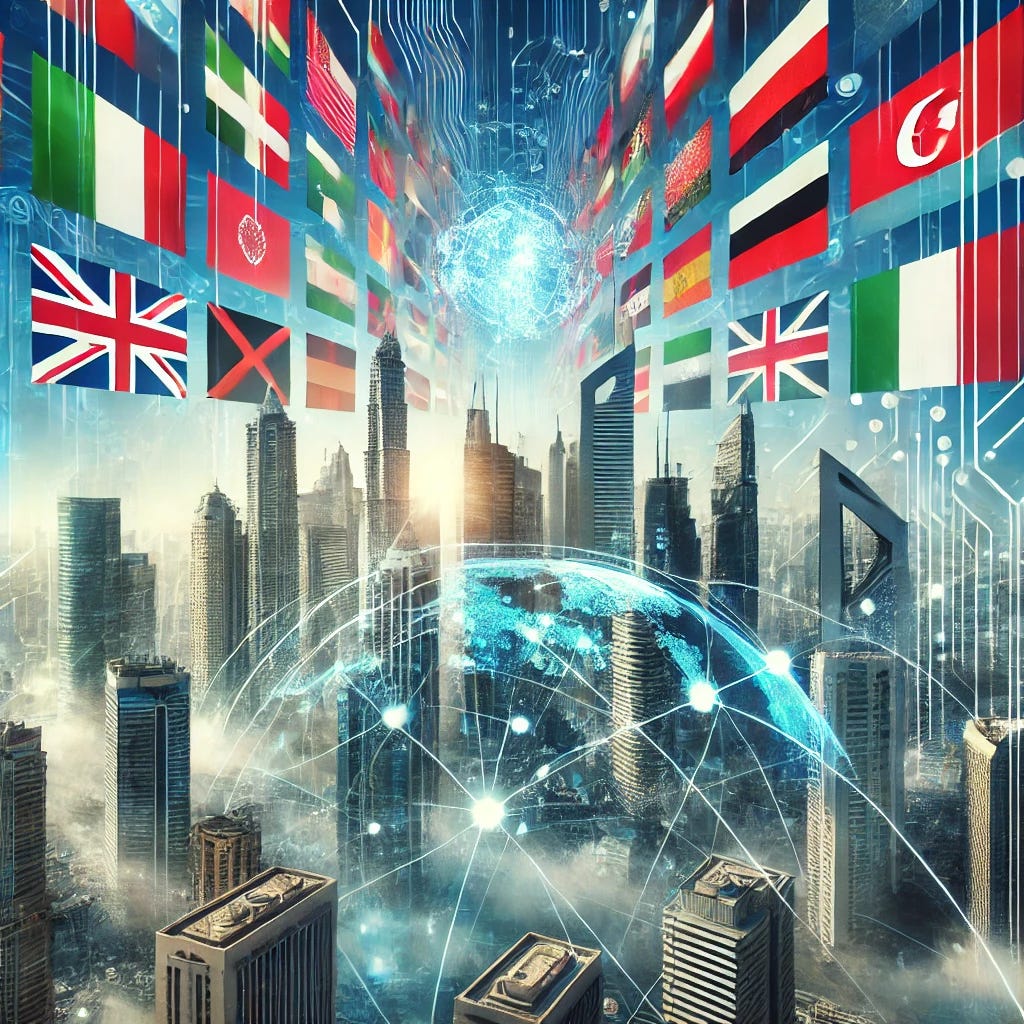To be American is to inherit a paradox. It is to stand at the crossroads of individual liberty and collective responsibility, national pride, and global interconnectedness. The world has long viewed the United States as a beacon of democracy and an empire of influence, a nation that preaches self-determination while wielding unparalleled global power. I embrace this contradiction. I am an American Globalist.
The term “globalist” has been tainted in modern discourse, politicized, and wielded as a pejorative by those who fear dilution—of culture, of sovereignty, of control. However, to be a globalist is not to forsake one’s homeland but to recognize that national strength is inextricable from global collaboration. The United States does not exist in isolation. Its economy, security, and very identity are woven into the broader fabric of international relationships, trade networks, and cultural exchanges. To deny this reality is to weaken the foundation of the American experiment.
I am an American Globalist because I believe in the power of interconnected economies. Our prosperity is a function of domestic production and dynamic global trade. The device on which this essay is written is the product of international cooperation: rare earth minerals mined in Africa, semiconductors manufactured in Taiwan, and software developed in Silicon Valley. The American economy thrives when it engages with the world, not when it withdraws from it.
I am an American Globalist because I recognize that security is not achieved through walls but through alliances. NATO, the United Nations, and countless diplomatic agreements are not shackles upon American autonomy but safeguards against global instability. Isolation breeds vulnerability, whereas strategic partnerships fortify national strength. To reject international cooperation is to forfeit influence, to cede leadership to those who would shape the world without us.
I am an American Globalist because culture is not a zero-sum game. Borders do not confine the arts, sciences, and philosophies that shape our world. Jazz, born in the American South, pulses through the streets of Tokyo. Shakespeare finds new resonance in the stages of Mumbai. K-pop fills American stadiums with the same fervor as rock and roll once did in London. The fusion of global influences does not erode American identity—it enriches it. To embrace this cultural exchange is not to abandon one’s roots but to strengthen them by understanding the broader human experience.
Critics argue that globalism erodes sovereignty and places international concerns above national interests. But true globalism does not necessitate subservience; it demands leadership. It requires a nation not to retreat into isolationism but to shape the world through diplomacy, innovation, and engagement. American leadership on the global stage does not weaken our standing—it defines it.
I am an American Globalist because I reject the false dichotomy of nationalism versus globalism. I believe in a nation that leads with strength, engages with wisdom, and prospers through cooperation. America does not exist apart from the world—it is of the world, and the world, in turn, is shaped by America. To turn our backs on this reality is to diminish the very ideals we claim to uphold.
The future belongs to those who recognize that strength is not measured by isolation but by the ability to navigate and shape the complexities of an interconnected world. That is why I am an American Globalist.







